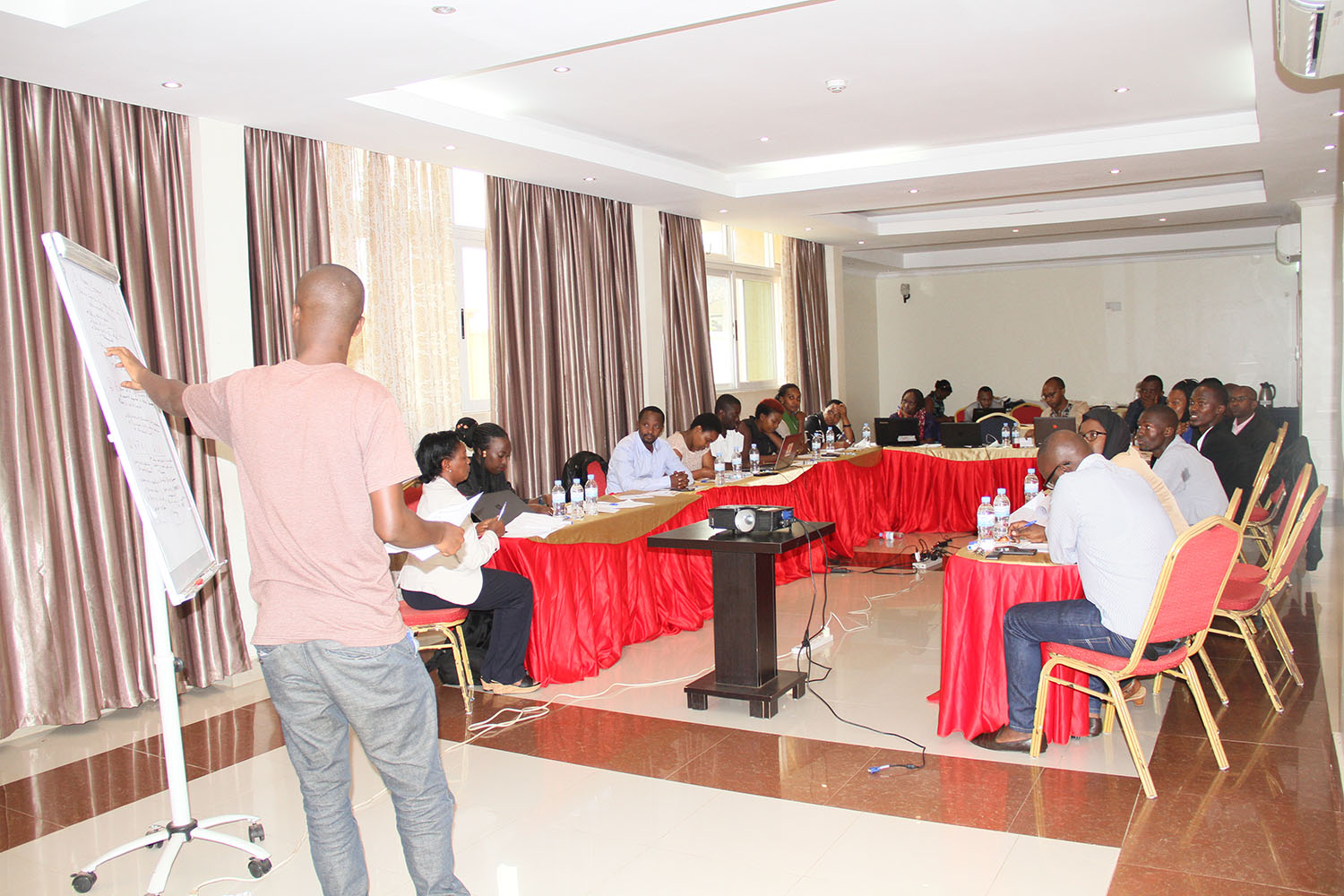Never Again Rwanda (NAR), Friday, convened at least 20 journalists from different media outlets in a one-day training aimed to equip media practitioners with basic gender concepts and gender analysis skills. NAR acknowledges the role of media in social transformation and promotion of gender equality as well as social justice, reason why there is need to devise strategies to address gender stereotyped-reporting.
In her remarks, the Head of Impact and Strategy, Immaculée Mukankubito said that the training is meant to create awareness on the role of Media in social transformation through the promotion of gender equality and social justice. “Never Again Rwanda trains journalists about gender issues and reporting in a bid to build their profession capacities but also at the same time to create gender awareness because journalists are the opinion leaders in the society”.
The presentations consisted of reflecting on gender concept-application of theories and practices, gender biases and stereotypes, society and media as well as reporting on sensitive issues, like; psychological and social wounds, especially for the survivors of the 1994 Genocide against the Tutsi and/or the youth affected with Inter-generational trauma. On reporting about the gender-related cases of psychological wounds, journalists gained an increased awareness about the immediate, short and long-term impacts of trauma, the need for sensitivity in reporting, and the basic ability to address trauma-related relapses.
The journalists who agreed that they often paid less attention to the aspects of sensitivity especially trauma related, when reporting, commended NAR for the thought of equipping the media practitioners with these skills. Citing the fact that the country suffered a terrible blow in 1994, leaving many people with physical and psychological wounds, they found the skills imperative. “There are times we write a report about a survivor and some of the challenges they are facing. We fail to consider the element of, if they have healed or not, and when we report, we just say their names or when we don’t say their real names, we say their real full address, this doesn’t help them on their journey to haling, thus has got to change.” Said one journalist
Media being a boundary partner for NAR under the societal healing and participatory governance program, which they implement in partnership with Interpeace, funded by SIDA, the programme is dedicated to equipping the journalists with the skills needed to concert their efforts in advancing the healing and participatory governance approaches.


